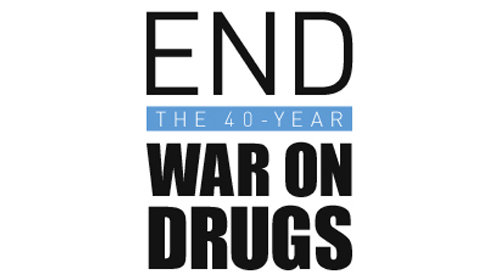How the War on Drugs began
Part 1
1970’s – The Nixon Years
The war on drugs has it roots from 1971 with President Nixon. Interestingly, President Nixon’s policy never began as a war but rather, was designed to address addicts. His thoughtful vision was reflected in his proposed budget where he dedicated a massive 2/3 to treating addicts and only 1/3 to law enforcement. But then something strange happened. He coined the phrase “War on Drugs,” during his presidential campaign and won in a landslide victory. From that point on, any thoughts on treating addicts was political suicide and the race to see who could be toughest on crime followed.
1980’s – Reagan “Say No to Drugs”
President Reagan dealt with the drug war by his “Say no to Drugs” slogan. A catchy little phrase that seemed simple enough except it completely missed the mark for the underlying problem of drug addiction. And if you didn’t say No, then President Reagan made you pay in a way this country had never seen before and often you were punished more severely than those convicted of violent crimes. To stamp out the problem of drug crimes President Reagan employed the full force of federal law enforcement including the FBI, ATF, DEA, and IRS. During Reagan’s presidency and beyond the incarceration rate in the United States rose dramatically as a direct result of this failed policy.
Why do I say failed? Because history has shown us that more jail time is not a deterrent to drug use and the demand. There’s an old saying regarding the definition of insanity “Doing the same thing over and over and expecting a different result.” Tougher penalties has not stopped the drug epidemic in this country. One of the major problems cited by critics is the disproportionate number of young African American men jailed because of drug crimes. Despite data that tells us that drug use is not limited to any specific race, if you review the incarceration rates the numbers seem to show that the sentencing and conviction rate is being applied unfairly.

Crack is Whack – Unfair Sentencing Laws
This form of cocaine and the fear that followed has done more damage to how we treat drug users than any other drug. But what is crack? It’s no more than cocaine, water, and baking soda. NO REALLY THAT’S IT. Cocaine with stuff you can find in your own refrigerator and cook in a microwave.
Somehow the addition of water and baking soda warranted a shift in sentencing policies by both State and Federal governments making those charged with crack cocaine to be punished much more severely than those charged with the pure form of cocaine. At the federal level, those that were convicted of crack cocaine crimes faced penalties that were at a 100-1 level compared to pure cocaine. What this meant was that if you possessed 5 grams of crack cocaine you would be sentenced as if you possessed 500 grams of cocaine. These changes were not made based on logic but rather to address the publics fear of crack. It also meant that because crack was significantly cheaper than pure cocaine many lower income users were being punished mere harshly than those that could afford pure cocaine.
President Clinton – 3 Strikes Law
Don’t think this is a rant on Republican’s because it’s not a conservative or liberal platform, they are both guilty of capitalizing on fear and prejudices. President Clinton stepped up and created the 3 strikes law that would stamp out those that don’t get the message if you are convicted a third time you will be put away for life. And that third strike didn’t need to be for a violent offense.
Drug Crime Attorney, Charleston SC
If you have been arrested for a drug crime call an experienced and trusted criminal defense lawyer Charleston, SC call the Dale Savage Law Firm today for a free case evaluation (843) 530-7813.

